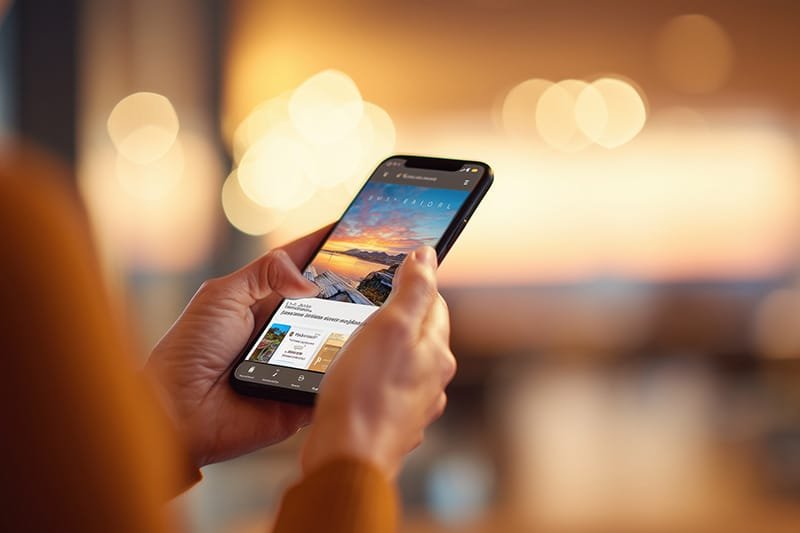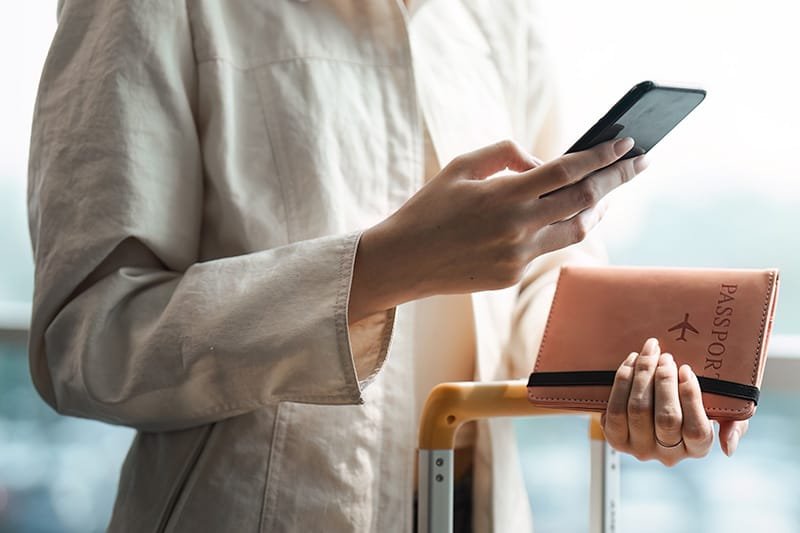Few things in life are as rewarding as traveling, and now you can book hotels and restaurants online, join groups, even book tours, take endless photos and videos, and so much more before even being there.
The downside of doing all your traveling online is that it can come with some online risks. However, you can minimize these risks by taking a few precautions, leading to a potentially safer experience.
Some of the Most Common Risks for Travelers:
- Public Wi-Fi risks: Free Wi-Fi at airports, cafés, and hotels is extra convenient, that’s for sure. But they can also be insecure and are often the preferred target for hackers to intercept data.
- Physical items: Losing a phone or laptop abroad can mean losing access to banking apps, travel documents, and private information. It doesn’t matter if you lose it or it gets stolen; both situations could be harmful to your privacy.
- Phishing and fake booking scams: Fraudulent websites and emails can imitate airlines or accommodation providers, tricking travelers into revealing sensitive details.
- Unsecured charging stations: Unfortunately, “juice jacking” is a thing, though it is rare, and charging your phone via a public USB port can allow malware transfer to your device. Try to bring your portable charger with you to minimize using these chargers.
- Location tracking and oversharing: Sharing real-time updates about your travels can alert thieves that you’re away from home or reveal your location to other strangers online. As a person with public profiles, I always post about my hotels and restaurants after I go.
Why Not Build Your Own Safety Plan?
Before you start your adventure, there are a bunch of simple things you can do to improve your peace of mind. Even non-tech-savvy people can implement these tips.
Secure Your Devices Before Departure
- Update all software and apps: Outdated systems are easy targets for criminals since updates typically include new security patches.
- It’s time to enable two-factor authentication (2FA): Even if someone steals your password, they can’t log in without the verification code.
- Back up everything you can: Store essential documents on a physical external hard drive or a secure cloud service. Think about passport scans, flight details, and everything you might need to travel.
There is a Reason Passwords Exist
No shocker here, but passwords do matter. Using the same password for everything is one of the worst security practices, along with dummy combinations like “newpassword1.” Choose strong passwords for all your accounts. Naturally, you won’t be able to remember them all, but that’s okay, as you can use a password manager to store and even generate them.
Have You Heard of VPNs?
We mentioned the risks of public Wi-Fi earlier. They are usually not encrypted and are easy for hackers to corrupt. A good and accessible way of preventing that is to use a VPN (Virtual Private Network). This tool will basically encrypt your connection, making it harder for criminals to access your data or track you.
Choosing a reliable VPN for travel is important, as not all VPNs are built the same. Make sure to have a reliable and efficient VPN provider to avoid any headaches when traveling. This way, you can be more relaxed when accessing public Wi-Fi or downloading data.
Tips for Public Wi-Fi
If you must connect to public Wi-Fi, and even if you have a VPN, you might want to follow these safety rules just in case:
- Avoid logging into banking or sensitive accounts.
- Turn off automatic connection to open networks.
- “Forget” the network after using it.
- Always use your VPN to encrypt your connection.
What About Social Media?
Did you even travel if you don’t share a vacation photo on social media? Well, this is what many of us feel, whether the feeling is conscious or not.
Social media creates this anxiety where every happy moment needs to be shared to feel validated. While that’s okay and it doesn’t necessarily harm anyone, it can also expose your whereabouts and habits to strangers.
Post After You Leave
You don’t need to, but if you are worried about your security, it is recommended to post that perfect beach photo once you are back home or at least in another location. Sharing your live location can draw local criminal attention or alert hackers that you’re away from home.
Be Selective with Friend Requests
One of the best things about traveling is that you often meet new people. That’s usually great, but surely you’ll be suspicious if someone starts asking for personal information just a few minutes after meeting them. The same applies to social media. Avoid accepting strangers’ requests and, of course, sharing personal information, even if it seems insignificant.
Digital Hygiene Advice
Good digital hygiene means adopting consistent safety habits before and during your travels.
Regularly Clear Sensitive Data
Delete boarding passes, hotel confirmations, and copies of IDs from your device after your trip. These contain barcodes and personal information that scammers can exploit later.
Update Passwords After Returning
Change passwords for critical accounts, especially if you used public networks during your travels. Changing passwords ensures no one can exploit data intercepted during your trip.
Review App Permissions and Logs
Some apps gather more data than you realize. A 2018 New York Times article showcased that massive databases are created with the app permission access given by users themselves. After your trip, review permissions and remove apps you no longer use.
Conclusion
Could you live without ever using the internet again? Probably not, so it’s best to take your precautions with your digital devices. People usually take their digital security for granted, but in reality, it is a huge responsibility we should all be aware of.
Even if you don’t have any new travels on the horizon, it couldn’t hurt to take some extra precautions, even if you’re working from your local cafe or coworking space.










